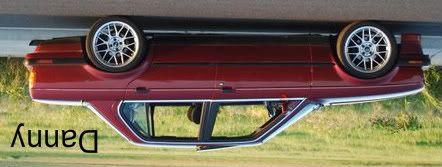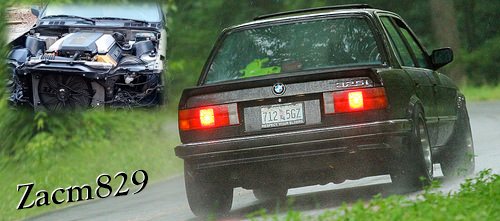:( Balls OK ill keep a look out for those. Anything i can do on my end to expedite the process?
Custom Gauges - Wideband, Boost/Vacuum, Volt, Narrowband
Collapse
X
-
Any way you could produce these for e36? Most cars have open punch outs where this guy has what looks like heated seat switches. I will gladly provide for you to work with. I need a stealth boost/wideband.
 Last edited by HiTheNameIsBJ; 03-18-2009, 07:51 PM. Reason: Edit: This is by far the best gauge design I have ever seen. Great job.
Last edited by HiTheNameIsBJ; 03-18-2009, 07:51 PM. Reason: Edit: This is by far the best gauge design I have ever seen. Great job.Comment
-
Rats - I thought I was caught up on PM's. I'll go back through and take a closer look. I've made some progress - it's all at the end of this thread.
Yep - but not with that nasty wood trim! Kidding - I'm sure I'll expand it out to other cars - at least I hope to. The e30 was nice to work with cause the button already had a plastic "window" or "face" to it. I'm gearing up for some other methods of making these work in all sorts of interesting spaces.
Yep. Soon I hope to be able to read any type of sensor you could think of.
More new stuff later - right now I'm working on catching up to back orders.Originally posted by Matt-Bhey does anyone know anyone who gets upset and makes electronics?Comment
-
Sorry - I'm tired, and I don't understand Whatcha talkin bout Willis...
What are you asking? Are we about to get into a discussion of electrical vs mechanical gauges?Originally posted by Matt-Bhey does anyone know anyone who gets upset and makes electronics?Comment
-
Yea that's just a google search pics, luckily not my interior. I won't need my center console for quite a while, so I guess lemme know if you need it for measurements and what not.Yep - but not with that nasty wood trim! Kidding - I'm sure I'll expand it out to other cars - at least I hope to. The e30 was nice to work with cause the button already had a plastic "window" or "face" to it. I'm gearing up for some other methods of making these work in all sorts of interesting spaces.Comment
-
-
Ok, I think I see what you are getting at. Take, for example, an Oil pressure gauge:
Mechanical pressure gauge: You "t" or tap into your high pressure side of your oil system, and run a small diameter copper tube into the cockpit, and attach that directly to the gauge. The copper is very hard to deal with, and the more you bend it, it actually gets harder to bend. You also have to avoid kinks, or crushing the soft copper. You also have to worry about abrasion. Usually you use a very small diameter tubing - that way if it brakes, you only have a small steam of scalding hot oil entering your car, and not a full on garden hose.
Electrical Pressure gauge: More expensive. They require you to use a sender. In the past, they were looked down upon. I guess they were cheaply made, or people didn't ground the sensor very well - either way, that's easy to deal with. Routing wire is much easier too. Only two or three to keep track of: power, ground and signal. Good news is that you won't have to part the car out when the mechanical gauge springs a leak, soaking the dash, electronics, and carpet full of motor oil.
So to answer your question - no, I'd never use a "mechanical" style of gauge.
Soon, I hope to be switching over all my future work to tiny microprocesser based designs. This will allow me to calibrate a gauge in the firmware of the chip - so even if something like a VDO oil pressure sensor is not 100% accurate from the VDO factory - the firmware of the chip will compensate for it based on what I tell it the correct value is.
:oLast edited by george graves; 03-18-2009, 09:54 PM.Originally posted by Matt-Bhey does anyone know anyone who gets upset and makes electronics?Comment
-
Not at the moment - I have back orders I need to fill first.
I do have temp sensors, and interior light delays left over from the last run.Originally posted by Matt-Bhey does anyone know anyone who gets upset and makes electronics?Comment








Comment